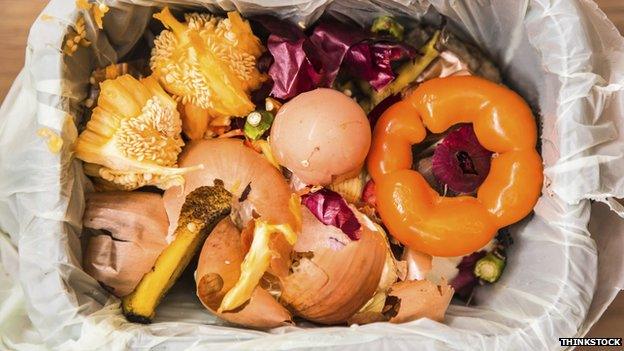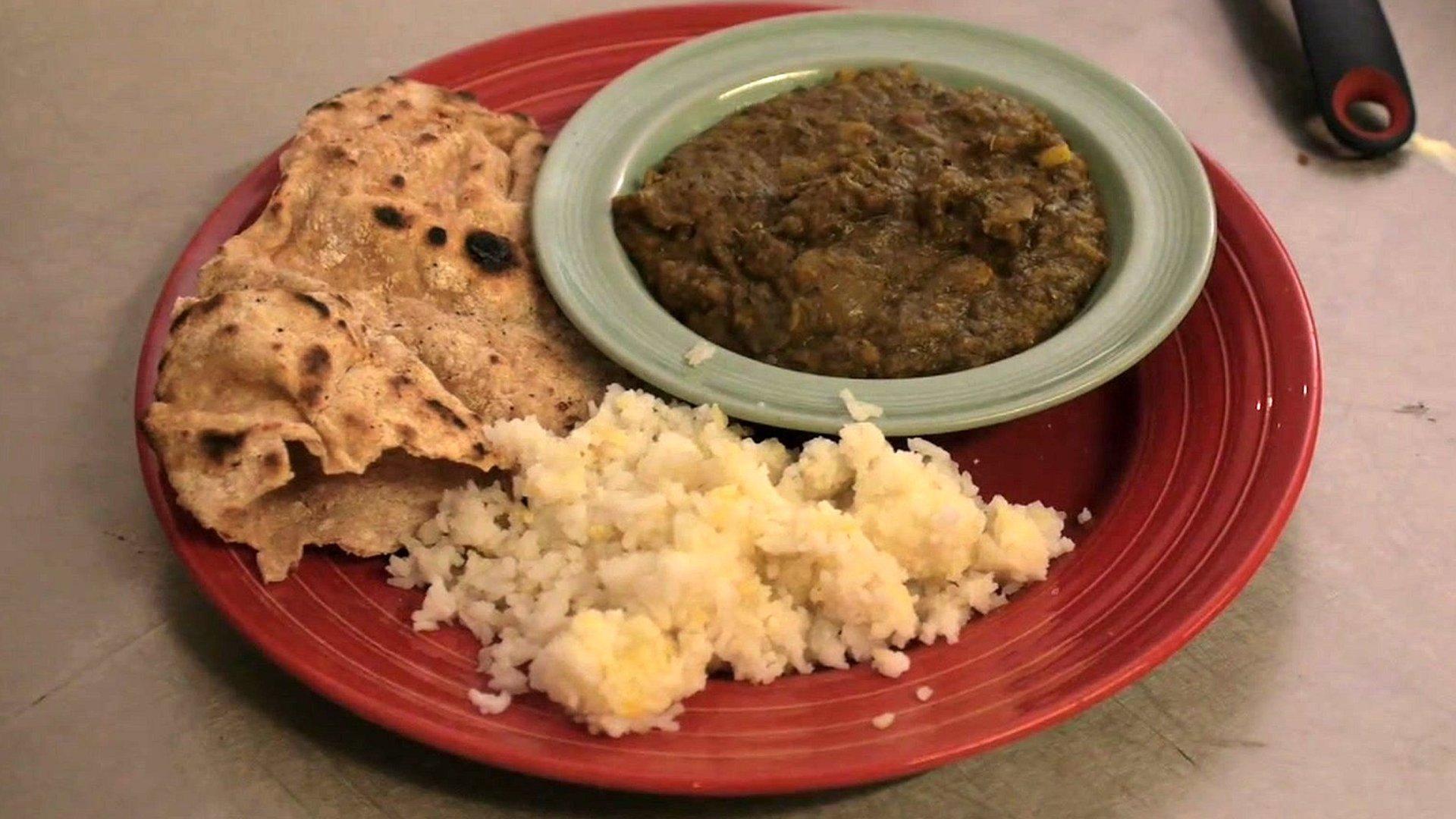Call for end to 'throwaway society'
- Published

Only around a quarter of local councils in England provide a separate food waste collection
MPs have called for a ban on food waste going in to landfill.
The report by the Environmental Audit Committee, external also called for lower VAT on recycled products and longer warranty periods on consumer goods.
It concluded that a "circular economy" approach is needed to save resources as the world's population rises.
In England, 8.5 million tonnes of local authority-collected waste goes to landfill, according to government figures.
If Scotland, Northern Ireland and Wales are included, the amount of waste in the UK being buried is in the region of 11 million tonnes.
The report called for a move away from "the throwaway society", said the chair of the Environmental Audit Committee, Joan Walley.
"It's really looking at a whole new way that we do business and how we live our lives, and really accepting that it makes sense from everyone's perspective to have a circular economy where we reuse and recycle and have virtually zero waste."
Local councils should be banned from sending leftover food to landfill sites, said the MPs.
Of the 7.2m tonnes of food thrown out every year, only 400,000 tonnes are collected separately for recycling in the UK, around 6% of the total.
The MPs also want separate food collections for composting or making biogas, renewable energy and fertiliser through the "anaerobic digestion" process.
Confusion
Businesses told the inquiry that the recycling regime in England is confusing and makes it harder for companies to get hold of raw materials that could be reused.
Mike Barry of Marks and Spencer told the Committee, "The number one thing that [the Government] can do to help us is to simplify the collection of waste in the consumer's home."
Wales and Scotland have made improvements in standardising recycling collections.
In Wales, more than 90% of homes now have access to organic recycling facilities.
However, in England, only around a quarter of local councils provide a separate food waste collection.
Resource Management Minister Dan Rogerson said the Government was fully committed to building a circular economy and wanted to see the UK leading the way in new waste and recycling markets.
"That is why we have invested £17m to encourage businesses to become more resource efficient," he said.
"We will continue to work closely with local authorities, industry and the voluntary sector to consider how best to take these recommendations forward and will respond to the Committee in due course."
According to a recent report by the think tank the Green Alliance, electronic goods worth around a billion pounds are put in landfill each year, but only around 2% are recycled.
"If we got that product back to someone who could repair it, about a quarter of products are readily repairable or reusable and that's a lot of value: we reckon at least £250 million per year," said Dustin Benton of the Green Alliance.
Pioneers
One company that would stand to benefit from the proposals is London-based company Envirowaste, which prepares thrown-away goods for reuse.
"People just ring us up and tell us to get rid of everything," said James Rubin, who welcomed the report.
"We all get rid of waste, and it's a matter of putting it into a bin and forget about it. People should be taking more responsibility."
But Aleyn Smith-Gillespie of the Carbon Trust said, "Stronger signals are needed to encourage businesses to take action on ending the throwaway society.
"Many companies do recognise the potential in a shift towards a more sustainable circular economy, but currently only a handful of pioneers are taking the important first steps."
- Published23 July 2014
